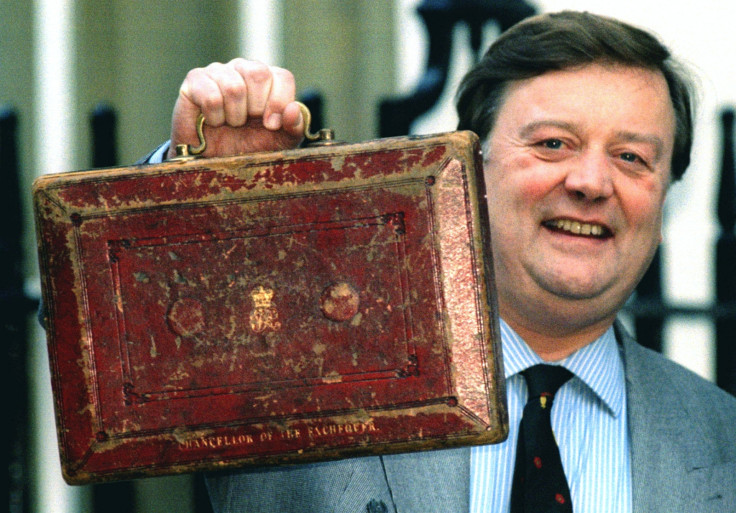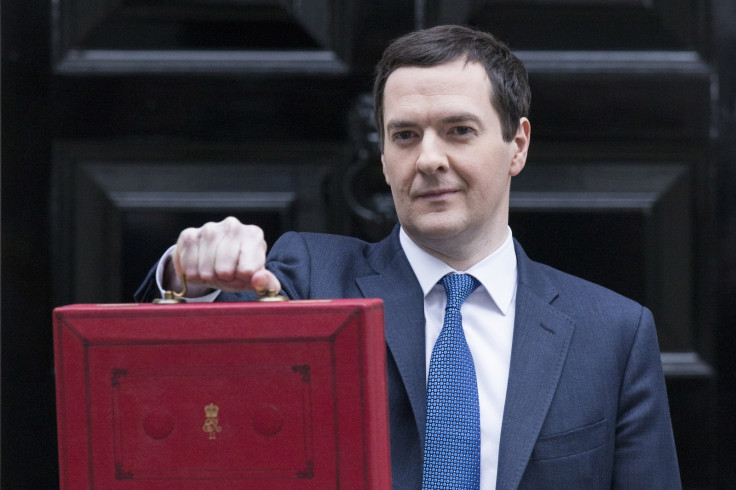Ghosts of red boxes past: How the last Conservative budget in 1996 compares to Osborne's in 2015

Chancellor George Osborne's budget delivered a raft of measures that explicitly confirmed that this is the first purely Conservative budget since 1996.
Reforms to income tax, inheritance laws and welfare cuts all featured prominently, as well as the bombshell announcement of a national living wage.
But how did it compare to the last one?
In 1996 it was Kenneth Clarke sitting as chancellor in John Major's cabinet. The main themes running through Clarke's budget – cutting income tax, raising the inheritance tax threshold and government spending – are remarkably similar to the thrust of Osborne's.
The overall economic and political landscape was wildly different though; there hadn't been a global financial crash and the Tories hadn't just won a majority. In fact, they were about to be routed by a young upstart called Tony Blair, who referred to Clarke's budget as "a last-gasp budget of a government whose time is up".
Here we look at the key issues and see how the 1996 budget compares to 2015's.
Economic growth
1996 – Clarke forecast economic growth of 2.5% for 1996 and 3.5% in 1997.
At the time, he said: "By keeping a close eye on the prospects for inflation up to two years out, and by taking sensible early action if and when necessary, I intend to ensure that healthy growth continues without inflationary pressures emerging. That is what I have always promised – no return to boom and bust."
2015 – Figures from the Office for Budget Responsibility published in conjunction with the budget forecast GDP growth of 2.4% for 2015 and 2.3% in 2016.
Osborne said: "Our long-term economic plan is working. But the greatest mistake this country could make would be to think all our problems are solved. You only have to look at the crisis unfolding in Greece as I speak to realise that if a country's not in control of its borrowing, the borrowing takes control of the country."

Income tax
1996 – 1p cut in the basic rate of income tax to 23p in the pound from 24p. Tax thresholds were also raised, resulting in people with lower incomes being taken out of paying tax.
"One of the Government's most important pledges is that we will move to a basic rate of income tax of 20p as soon as we can. We are proving that we can move towards the delivery of that promise and still maintain healthy public finances," Clarke bellowed.
2015 – Osborne raised the 40p rate of tax to £43,000 and increased the threshold for basic tax to £11,000
"We will now legislate so that after that the personal allowance always rises in line with the minimum wage, and we never ask the lowest paid in our society to pay income tax."
Inheritance tax
1996 – Inheritance tax threshold was raised to £215,000, up 40%.
Echoing Tory sages down the ages, Clarke said: "Inheritance tax is nowadays a penalty on thrift, independence and enterprise. It is a growing anachronism. Lloyd George's maxim that the 'the most convenient time to tax the rich is when they are dead' no longer holds."
2015 – Inheritance tax threshold was raised to £1m for married couples
"The wish to pass something on to your children is about the most basic, human and natural aspiration there is. Inheritance tax was designed to be paid by the very rich. Yet today there are more families pulled into the inheritance tax net than ever before – and the number is set to double over the next five years. It's not fair and we will act."
Government spending and welfare
1996 – Health and education saw a £1.6bn cash injection while £450m was spent on cutting crime. Reduced housing benefits for single people were launched in order to shrink the welfare state.
Clarke said: "We have reformed the NHS so it is much better managed and much more efficient. It is no good opposing these improvements, because when waste is reduced, more can be directed to higher quality patient care."
2015 – Osborne confirmed £12bn of cuts to the welfare bill, scrapped student grants and froze public sector pay. In addition, the Conservatives slashed tax credits, froze working-age benefits and withdrew housing benefit from 18 to 21 year olds. The benefits cap was cut, to £23,000 in London and £20,000 outside the capital.
"We have to move Britain from a low-wage, high-tax, high-welfare society to a higher-wage, lower-tax, lower-welfare economy."
© Copyright IBTimes 2025. All rights reserved.






















